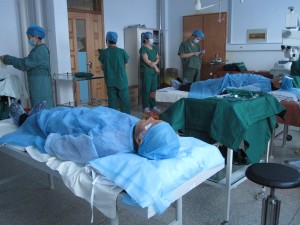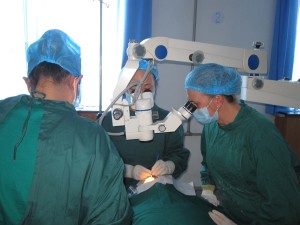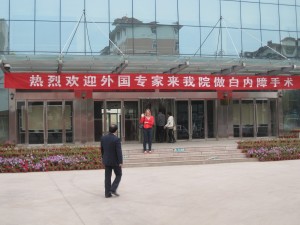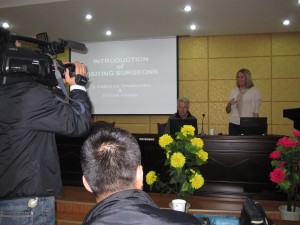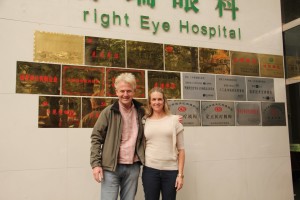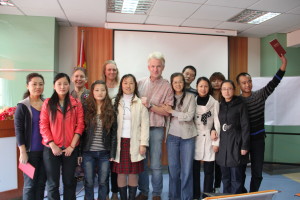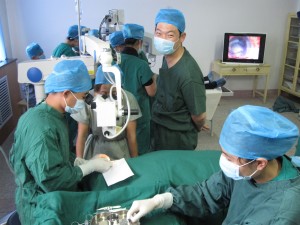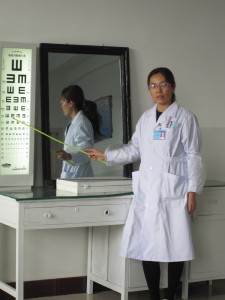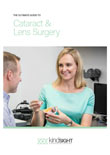Fred Hollows Foundation, China
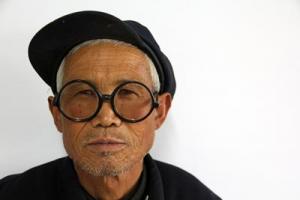 In 2013, I was honoured to be invited by the Fred Hollows Foundation China to undertake an international surgical excursion – this time to regional China.
In 2013, I was honoured to be invited by the Fred Hollows Foundation China to undertake an international surgical excursion – this time to regional China.
The state of eye health in China
In many areas of China, most eye doctors are not adequately trained to perform cataract surgery. To put this into perspective, at a large regional hospital where there maybe 50 or so eye doctors on staff, only 1 or 2 will actually be able to perform cataract surgery.
The impact of this on the community at large is that the rates of cataract surgery are low and, subsequently, cataract blindness is common.
A Chance to Create Positive Change
I have always been incredibly keen to work with surgeons from other countries and this particular excursion was no different. The opportunity to gain insight into the delivery of eye care in regional China was one I couldn’t pass up.
My fellowship with the Fred Hollows Foundation in the South Pacific and Nepal meant I had experience in performing Sutureless Incision Cataract Surgery (SICS). This skill could be viably taught and utilised in regional parts of China. SICS is a different cataract surgery technique to the one typically performed in Australia. The method involves manually extracting the cataract without the use of specialised ultrasound equipment (i.e. ‘phacoemulsification’), which is often too expensive or inaccessible in regional areas.
My role was to train the local surgeons in the SICS technique and to empower them to begin their surgical careers. By doing this, we aimed to create a shift in philosophy that would improve eye health and surgical outcomes for the local population.
Lasting a week, the trip was fleeting yet productive. During the days, I was involved in training the surgeons and conducting post-operative reviews. In the evenings, I enjoyed getting to know the Chinese doctors better over a large, traditional Chinese banquet dinner.
Lessons Learned During the Trip
It was interesting to observe the rudimentary facilities in this part of regional China when it came to eye surgery. Furthermore, it was surprising to learn that, unlike Australia, most eye doctors are not trained in cataract operations. For me, this has always been a fundamental part of being an eye surgeon! Improving someone’s vision through cataract surgery is one of the most satisfying parts of the job. Having the opportunity to share this passion with others was an experience I won’t quickly forget.
It was also confronting to learn local surgeons were not using any anaesthetic, apart from topical eye drops for the surgery. This is undoubtedly a very uncomfortable experience for the patient and creates an unstable operating environment.
This trip was an incredible revelation and an amazing experience. I am hopeful a positive impact was made on the 8 surgeons I worked with. In such a short time, we were able to leave behind a lasting impression on the local surgeons. Furthermore, we shared critical knowledge and skills that would help more people to access the treatment they needed. Safely and successfully.
I look back on my trip to China as a career highlight. I am proud of what we achieved in a mere week for eye health in China’s regional communities. Check out some pictures of my trip to China below.

